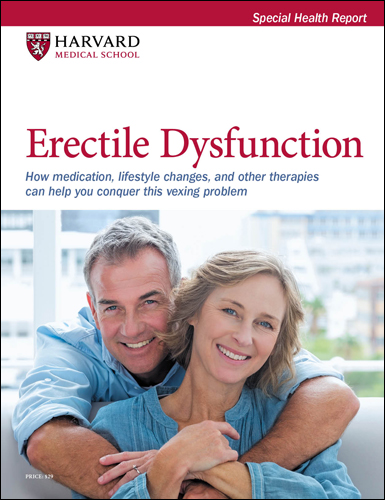Erectile dysfunction drugs linked to lower Alzheimer's disease risk
In the journals
- Reviewed by Howard E. LeWine, MD, Chief Medical Editor, Harvard Health Publishing; Editorial Advisory Board Member, Harvard Health Publishing

Another benefit to taking erectile dysfunction (ED) drugs? They may help lower your risk for Alzheimer's disease, according to a study published Feb. 27, 2024, in Neurology. Researchers studied the health records of approximately 270,000 men who were diagnosed with ED between 2000 and 2017. The men's average age at diagnosis was 58. Over a median period of about five years after diagnosis, men who took any of the ED drugs known as PDE5 inhibitors — sildenafil (Viagra), tadalafil (Cialis), vardenafil, and avanafil (Stendra) — were less likely to have an Alzheimer's diagnosis than those who didn't take one of the drugs.
How may these drugs help? These ED medications appear to increase brain blood flow, and they may reduce brain inflammation associated with developing Alzheimer's disease. While the results only show a link between taking PDE5 inhibitors and lower dementia risk, the findings align with similar studies, according to the researchers. While the potential for brain benefits is enticing, much more research is needed before concluding that any of these ED drugs might help maintain cognitive fitness.
Image: © Oliver Rossi/Getty Images
About the Author

Matthew Solan, Executive Editor, Harvard Men's Health Watch
About the Reviewer

Howard E. LeWine, MD, Chief Medical Editor, Harvard Health Publishing; Editorial Advisory Board Member, Harvard Health Publishing
Disclaimer:
As a service to our readers, Harvard Health Publishing provides access to our library of archived content. Please note the date of last review or update on all articles.
No content on this site, regardless of date, should ever be used as a substitute for direct medical advice from your doctor or other qualified clinician.
















